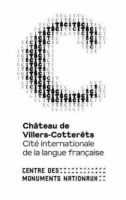Strengthening cooperation between the State and local and regional authorities
In the context of a heightened concern of the public authorities for the question of territories, the new linguistic solidarity between the State and the local authorities is a priority for the Ministry of Culture for the coming years. If our language is essential to our republican pact and to social cohesion, it is because the French language is the first factor of social cohesion, cohesion which the territories of the Republic urgently need today, with particular regard to the expectations of the new generations. Local and regional authorities are the privileged interlocutors of the Ministry of Culture in the field of language policy conducted at the territorial level, taking into account their respective competences.
Designed as a tool for state-local authorities cooperation, a new mechanism is proposed under the name of language pact. It makes it possible to identify and network the actors in the territory and to jointly implement the priorities for action in favour of French, Francophonie and regional languages. This innovative system contributes to the State’s language policy, the coordination of which is the responsibility of the General Delegation for the French Language and French Languages (DGLFLF) in conjunction with the central and decentralized services (DRAC and DAC) of the ministry of culture. Within the DRAC and CARs in the French Overseas Territories, responsible for conducting the State’s cultural and linguistic policy in the region and its departments, The French and French language advisors follow up on the French language and French language files.
A language pact in Hauts-de-France
Through this pact signed in 2020, the Ministry of Culture, the Hauts-de-France Region, the Département de l'Aisne and the Communauté de communes Retz-en-Valois have committed to strengthen their cooperation with regard to the territorial priorities that the Cité internationale de la langue française in Villers-Cotterêts in the Aisne region will make it possible to take better account of social cohesion (combating illiteracy, mastering French and cultural action), promotion of cultural and linguistic diversity (welcoming the Francophonie in France, regional languages through Picard and Western Flemish), innovation and language technologies. Access the Language Pact Convention.
The pact was joined in 2022 by four departments in addition to the Aisne (Oise and Somme, Nord and Pas-de-Calais).
What language skills?
The Hauts-de-France Region is leading an action to combat illiteracy as part of its cultural policy (support for book mediation for audiences in difficulty), as part of vocational training (Learn to Read-Write-Act program, CléA certificate of professional knowledge and skills), community life and youth policy. It promotes regional languages, notably by supporting the creation of the Office public du flamand occidental and by initiating an equivalent initiative in favour of Picard.
The Departments exercise their competence through public reading, the accompaniment of the actors of the territory to strengthen access to culture or the departmental contract mechanism Culture-college co-animated with the DRAC of Hauts-de-France.
The Community of municipalities Retz-en-Valois is associated with the DRAC in the framework of the public reading in connection with the departmental council of Aisne.
What actions?
The actions implemented in 2020-2022:
- A biannual regional edition of the call for projects “Action culturelle et langue française” under the DRAC
- The deployment ofListen-Speak, the Language Mobile Laboratory under the auspices of the DGLFLF and in collaboration with the CNRS
- Actions around the public reading associating the DRAC on the community of communes Retz-en-Valois and in the department of Aisne (Departmental contract reading-roaming)
- Mapping of actors and actions in French, Francophonie and regional languages (Picard and Western Flemish)
Partager la page



